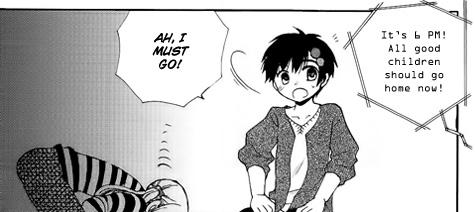First, i'm gonna write based on my experiences on self study of Japenese (I took classes, but they did not help me much, so I ditched them pretty early in my journey).
I passed the N1 last year (highest level a foreigner needs in Japanese, it mainly used for companies/employers to attest your Japanese level, it is comparable to a highschool level of Japanese). I know people that didn't take any level of the JLPT and they speak better then me, so take that as you will.
It took four years of part-time study to get the N1, 3 hours everyday (except Sundays and sick days), half of those, just studying Kanji. Some materials that I used:
WaniKani: Spaced repetition website involving
Mnemonics. Has a paywall of 10$ a month (People from the Beta and Alpha days have a 50% discount).
Main Use: Kanji & Vocabulary Learning
I think it's worth it because it streamlines the whole Kanji and Vocabulary learning process for you, you just need to show up everyday and study. It doesn't teach you how to write (unless you're in a cellphone or computer), but seriously, when was the last time that you needed a pen and paper to write something? I think that learning how to write will only slow you down. I'm not saying don't do it, i'm saying that you need to prioritize your learning, and spend more time on things that actually matter.
Foreigners/and even Japanese people in general write like crap unless they did Japanese calligraphy or something like that. Your chances to write something, even in Japan will be few and far. Most of the time you'll spend in front of the computer/cellphone or talking to people so take that as you will.
Anki: Anki is a flashcard program that uses
SRS to drill information into your head, wanikani in function was largely based in this program, which was based in even older program called SuperMemo. You can download premade decks. It shows you a set amount of new cards each day (default 20) and will show you the same cards again when you are most likely to forget them, which is predicted through algorithms. This program has a lot of features that can?t be covered here, so read the manual if you wish to totally utilize Anki. You can also get this on your mobile device and sync your deck between both versions. The official App Store version costs money (to support the devs) so you might just want to use Safari in that case instead. Turn to Anki if you don't want to Pay for wanikani.
Main Use: Kanji and Vocabulary Learning (jōyō kanji and core 6000 decks)
Genki: Probably the most hyped textbook from English speakers learning Japanese, and it delivers. It's probably the best textbook to study basic Japanese grammar. Genki makes Japanese look easy, make yourself a favour if you use it, and grab the audio as well, Genki lose most of it's effectiveness if you don't use it. The main problem of genki is it's slowness. I took half a year to complete just 1 volume. Making a year to complete the whole series (2 volumes). If you want something faster I don't recommended Genki. Look for something like
Japanese for EveryoneMain Use: Hiragana, Katanaka, Kanji, Vocabulary, Speaking and Listening Practice.
Tae Kim Grammar Guide Tae Kim is the man, when you don't understand anything, turn to Tae Kim for help. He covers N5 to N3 material in his guide.
Main Use: Grammar Learning
Visualizing Japanese Grammar: If you're more of a visual person, i greatly recommended this as a supplement to Genki. Shoko Hamano is a great teacher, wished i had someone as good as her when i made the mistake to go to Japanese classes in my local university.
Main Use: Grammar Learning
Japanese the Manga Way: This book teaches grammar through examples from actual Japanese executed in a practical manner. It works well as a Genki supplement, or as a simple introduction to the major grammar points of Japanese. It uses too much romanji, but the material is good.
Main Use: Grammar Learning
An Integrated Approach to Intermediate Japanese The most logical step after Genki, the reading is more dry and less "fun", but that's to be expected
Main Use: Reading, Writing and Grammar Learning
Tobira: Gateway to Advanced Japanese The logical step after Integrated Approach, it's to be expected that the hand holding ends here.
Main Use: Reading, Writing and Grammar Learning
Lang-8:Here, you can write journal entries which are corrected by Japanese natives, and in return, you correct theirs. This is a great way to increase your writing/production ability and also meet people to talk to. Most important to N3/N2 level. You'll outgrown Lang-8 quickly enough.
Main Use: Writing and Reading Practice
All Japanese All The Time: Sometimes it's not about study materials that you need, sometimes it's just your head, your mentality. If you want someone to lift you up when you're feeling down, is this guy here. Read his tips, they help, a lot.
Main Use: Motivational and Learning Language techniques
SkyPeech: Here's a site for finding some natives on Skype to talk to. This a Japanese site for Japanese people, so do not misunderstand and think that everyone here has an interest in learning English, French, Spanish or whatever your native language is.
Main Use: Speaking Practice
Rikaisama/
Rikaikun: Rikaisama is a tool that shows you equivalent or close meanings (in English) of Japanese words in plaintext format, by hovering over them. Has many useful features such as audio playback and the ability to save words to a file or import it straight into Anki.
Rikaikun is Essentially an unfortunately inferior clone of Rikaichan/Rikaisama, but still serviceable enough if you just can't let go of the botnet.
Main Use: Dictionary
Yotsubato!: Probably the cutest and most uplifting manga ever, it'll probably by your first complete read in N5/N4 level, and I do recommend it.
Main Use: Reading Practice
There's way more things that I did, but it'll turn the post even longer, so i think this is enough to get you started.
I have as well, B2 in French (Working on C1), C1 in Spanish, Band 8 in IELTS (English is not my native language), My native language is Portuguese. So I technically, can go to any country in the American continent (+Japan) and make myself understood.
Last edited by Samken at 7:32 am, Jan 6 2015




